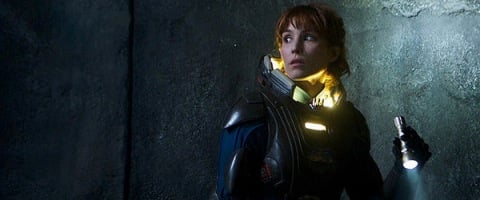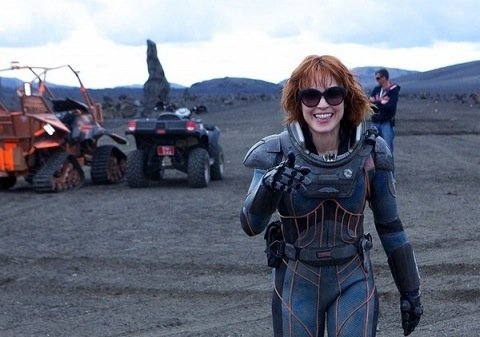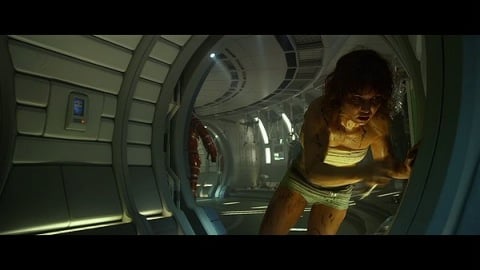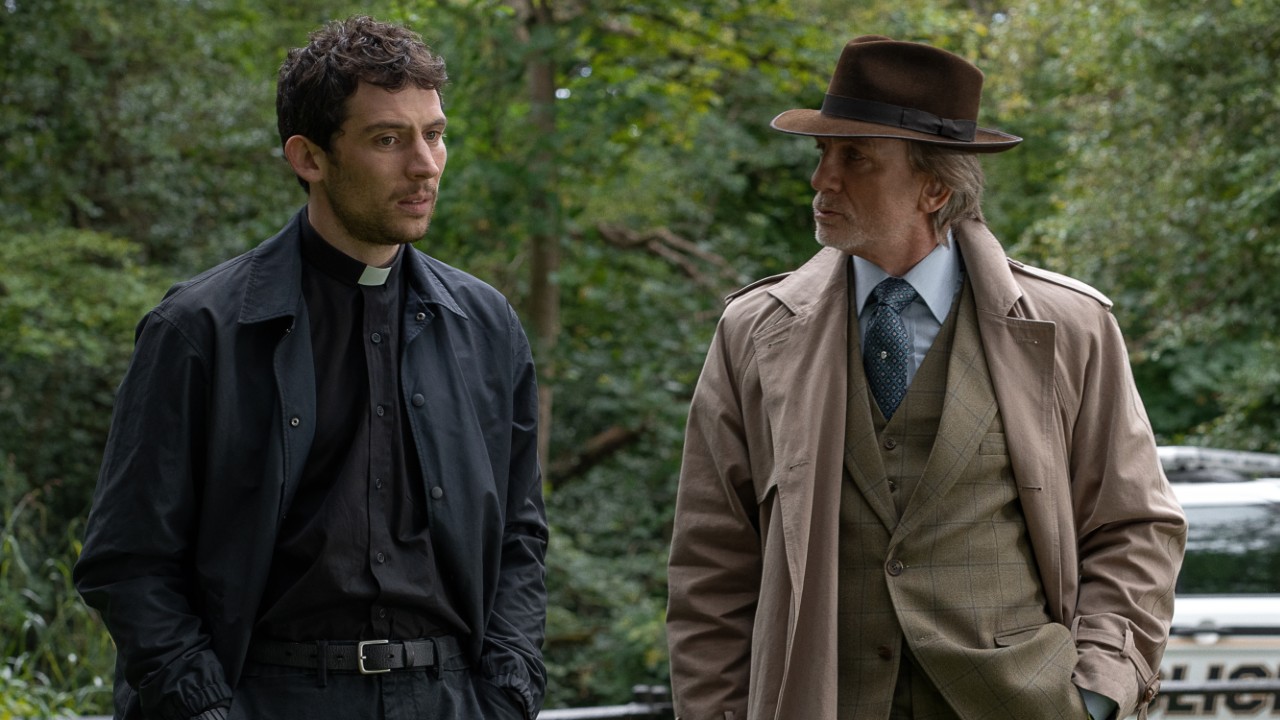Prometheus Star Noomi Rapace On Ridley Scott, Alien, And Possible Sequels

The name “Ripley” isn’t mentioned in Prometheus. That might be a good thing, for by the end of Sir Ridley Scott’s foray back into the realm of his Alien universe, another headstrong female protagonist is vying for Ripley’s crown as resident intellectual with a side of ass-kicking courage.
Meet Dr. Elizabeth Shaw, a woman of faith and science played by Noomi Rapace, the original Girl with the Dragon Tattoo. Shaw’s quest to meet her maker puts her on board Peter Weyland’s space craft bound for a solar system that has been identified on cave walls in key cities around our planet. Is it an invitation from a distant, alien civilization … or a warning to stay away for fear of the dangers that await them.
That’s one of the many questions found at the heart of Prometheus, an intricate puzzle that Rapace and I happily tried to solve over the course of our exclusive interview. Here’s Noomi Rapace:
We throw this term around far too much in our industry, but having spoken with him earlier in the day, I’m comfortable calling Sir Ridley Scott a genius.
He is a genius. And he is an icon. And he absolutely is one of my heroes.
Because he has thought out this world, and is only showing us a small sliver of a larger universe, how much of the mythology did he share with you, and how much did you need to know to fully develop Dr. Elizabeth Show?
I think what’s so fantastic with Ridley is that he is the master of finding and building new worlds. And he knows exactly what he wants, but he’s still very open. He wants our opinions. He has asked me many, many times, “What do you think, Noomi? How would you do this?” And I had lot of ideas and things I wanted to try. I actually had a few scenes that I wanted to add. He thought about it, and came back and said, “Brilliant. You know what? I think you’re right. I think we need that.”
Your Daily Blend of Entertainment News
He almost has this childish hunger and desire to discover and create things, to explore and dig in to characters and find life in them. It is a fantastic combination of being in charge, of being the leader, but still being an asker of questions. That’s probably what makes him so fantastic, a man who constantly breaks new ground and makes mind-blowing movies.

Without spoiling much, the ending of Prometheus suggests more to the story. Did you often discuss with Ridley what might come next in the story? How much of that did you want to know?
I don’t think it’s necessary to know what is coming next to do what we are doing here, because you never know, in life, what will happen tomorrow. So you don’t need that information. But definitely, we have been talking about it a lot and dreaming about it. I have real dreams about what happened in the events after Prometheus. I would absolutely love to go back with him into this world.
I also don’t believe Scott gets enough credit for being an actor’s director. He’s often credited with creating epic-scale dramas. But he also gets tremendous performances from his ensembles, which helps ground a lot of the big ideas that he has.
Oh yeah. And do you know what? He loves actors. I remember that I said to him, “I don’t want to be this perfect action heroine. I don’t want make up. I don’t want to look beautiful and sexy and all of those stupid things. I want it to be real. And if it happens to be beautiful in that crazy, fucked up situation, fine.” I think that’s the problem with many big action movies. The women get caught up trying to look good, to be beautiful and sexy. That becomes their main purpose. For me, that becomes boring and hollow. And he loved that! He was like, “No, absolutely not, no make up, no mascara, more sweat!” And I love him for that.
And yet, he is so precise with details. One day he came to me and he said, “So that stain of blood on your cheekbone. … I’m wondering if we should maybe move it down a little bit.” He’s so observant. Sometimes I wonder how his brain works. How can he be looking at seven monitors with seven cameras going and still care about that blood on my cheekbone?

Your character has the very difficult task of bringing religion into the equation. And faith. As an actress, how much of this do you have to believe as an individual to help sell the performance? Can they be wildly different from your own beliefs?
I think so. I did a movie with Brian De Palma called Passion, and my character’s spirit is so completely disturbed. She has a very weird inner landscape. Her thoughts are pretty far away from my thoughts. Elizabeth Shaw is more close to me. It’s easier for me to step into her shoes. But I always say that I have to find a way to always use myself and translate things from my own life. For example, to find the religious side of her, I really had to travel back to my own childhood to remember what I thought and how I saw things. And I believed in angels. I was always pretty sure that we have two different kinds of angels – dark angels and good angels. So a lot of time, as I tried to find Elizabeth, it was almost like I traveled back into myself. You have to use yourself. Or, that’s what I need to do. I don’t want to pretend. I don’t want to fake it. I want to live it.

Sean O’Connell is a journalist and CinemaBlend’s Managing Editor. Having been with the site since 2011, Sean interviewed myriad directors, actors and producers, and created ReelBlend, which he proudly cohosts with Jake Hamilton and Kevin McCarthy. And he's the author of RELEASE THE SNYDER CUT, the Spider-Man history book WITH GREAT POWER, and an upcoming book about Bruce Willis.
